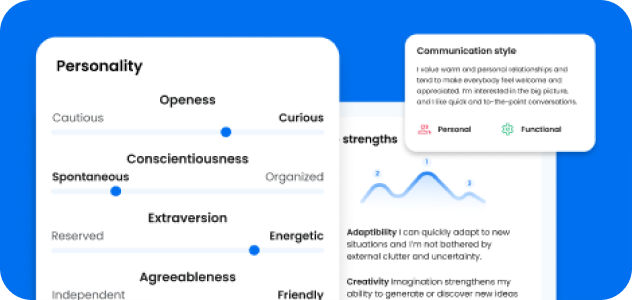Is capital goods a good career path? A short guide.
Uncover the essentials of a career in capital goods with our short guide. Learn about job opportunities, industry trends, and growth potential to help you navigate your career path in this dynamic field. Whether you're just starting or considering a change, this guide offers valuable insights to empower your decision-making.
Is Capital Goods a Good Career Path?
Capital goods refer to the tools, machinery, and equipment used in the production of goods and services. A career in capital goods can be a good choice for those who are interested in engineering, manufacturing, and technology. The industry is constantly evolving, and there is a high demand for skilled workers. With the right education and experience, a career in capital goods can be both rewarding and lucrative.
Types of Jobs in Capital Goods
There are many different types of jobs in the capital goods industry. Some of the most common positions include mechanical engineers, electrical engineers, software engineers, project managers, and production supervisors. Other roles may include quality control inspectors, sales representatives, and customer service representatives. The industry is diverse, and there are opportunities for people with a wide range of skills and interests.
How Best to Start a Career in Capital Goods?
To start a career in capital goods, it is important to have a strong educational background in engineering, technology, or a related field. Many employers require a bachelor's degree or higher for entry-level positions. It is also important to gain practical experience through internships or co-op programs. Networking with professionals in the industry can also be helpful in finding job opportunities.
What Do Jobs in the US and UK Pay in Capital Goods?
Salaries in the capital goods industry vary depending on the specific job and location. In the United States, the average salary for a mechanical engineer in the capital goods industry is around $87,000 per year. Electrical engineers can expect to earn around $96,000 per year, while software engineers can earn upwards of $100,000 per year. In the United Kingdom, the average salary for a mechanical engineer in the capital goods industry is around £35,000 per year. Electrical engineers can expect to earn around £40,000 per year, while software engineers can earn upwards of £50,000 per year.
What Are the Downsides of a Career in Capital Goods?
Like any industry, there are downsides to a career in capital goods. The work can be demanding and require long hours, especially during peak production times. There may also be a high level of stress and pressure to meet deadlines and maintain quality standards. Additionally, the industry is subject to economic fluctuations, which can impact job security.
What Are the Fastest Growing Jobs in Capital Goods?
The capital goods industry is constantly evolving, and there are many opportunities for growth and advancement. Some of the fastest growing jobs in the industry include software engineers, data analysts, and project managers. These roles require a strong understanding of technology and data analysis, and are in high demand as companies look to improve efficiency and productivity. Additionally, there is a growing need for professionals with expertise in sustainability and renewable energy, as companies look to reduce their environmental impact.
Is capital goods a good career path?
Take Gyfted's career path test to determine if capital goods is the right field for you. With an estimated salary range of $60,000 to $120,000 for roles in this sector in 2023, capital goods offers promising financial rewards along with robust job security. Explore various opportunities within manufacturing, machinery, and construction, and understand the growth potential that makes this industry attractive for new entrants and seasoned professionals alike.

Salary data
A major reason why job markets are dysfunctional and inefficient is because of the lack of salary transparency in job postings. Knowing salary expectations on the candidate side and the salaries behind job postings would significantly cut down labor market and recruitment friction. That’s why we set out to gather - both based on user generated data and external data sources - the largest salary dataset on remote and hybrid jobs.
Check out our remote job board
Free Personality tests
All of the following assessment tools explore an individual's personality thoroughly, although the Big5 is the gold standard among personality assessments. And what’s key is that are all available for free here:


